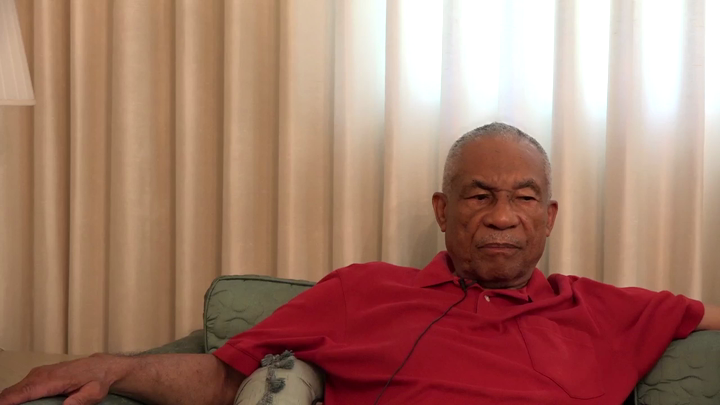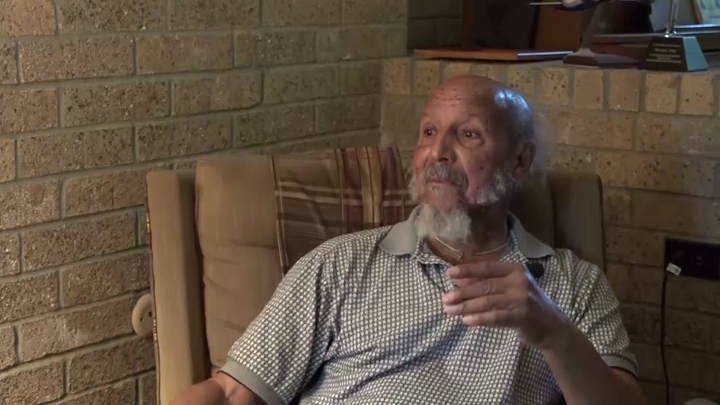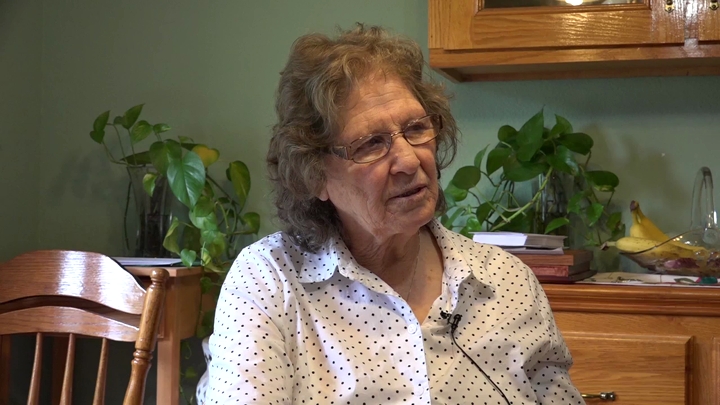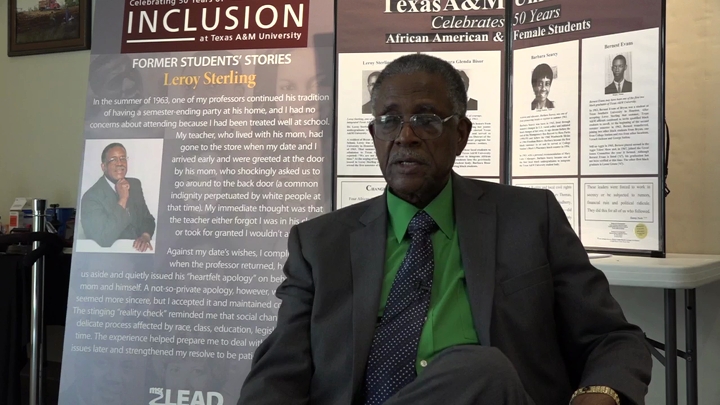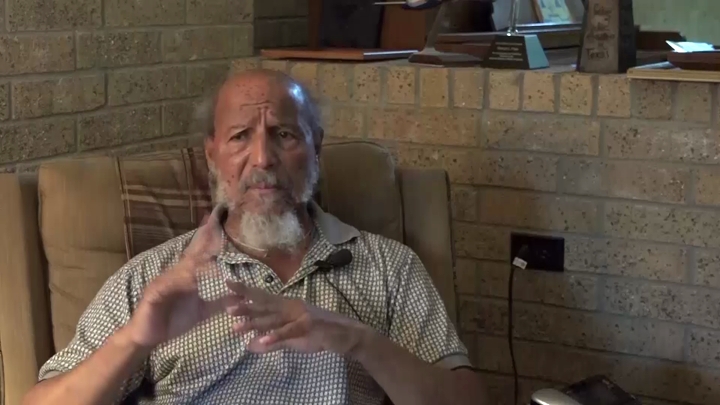Wilborn / Experiences in the Military, Part One
sign up or sign in to add/edit transcript
Wilborn: So, that’s where I ended up. Meantime, I get back to the Army. I went Army in 1952 and I got out early in 1954. They passed a law said you go back to college—going to college, we’ll let you out early. So, I knew I was going back, so I got out. I served in Korea, three months combat. I was in the 64th Tank Battalion, Third Division. Matter of fact, I went in—I took my basic training at Fort Knox, KY. They sent us straight to Korea because they told us we were troublemakers, so we going to take care of you fellas. We going to take you where you can get in all the trouble you want. We sending you to Korea. That was a sad day. So anyway, we went like he said. On the ship, I can remember, I’m seeing the Red Cross emptying bodies into the sea. That’s why I know a lot of times, the bodies came back here weren’t bodies. May have been a casket. May have been a rock or something. They don’t know what was in there. So, the priest, or the chaplain we called him. He said, “Some of you been knowing each other,”—I can remember this part of the prayer—“you been knowing each other all your lives. Some of you been in basic training, but let’s be realistic, some of us will never see each other gain.” That stayed with me. I said, “Lord let me be one of them to make it back.” As I was going up, of all people, they picked me to be a guard. I could see where the railroad tracks had been bombed. We were going to the front line. You know, some people got to smoke. They tell you in basic training they can hit you with a cigarette in your hand much easier than they can a bonfire. He had to smoke. So, you’re not supposed to carry a round or put a round in the chamber or anything, not supposed to have it loaded and all. I just told the young man, he had to have a cigarette, I just cocked it on him. I said, “Go on and light it. You dead. You’re going to jeopardize our lives just because you got to have a cigarette? Everybody on this train? That’s probably why that train was wrecked, and these tracks the way they are. People like you.” He said, “You’d do it wouldn’t you?” I said, “No doubt about it. Wouldn’t think a thing of it. It is you or it is I.” So, he didn’t as a result. I know when I got there, they put you on duty. The kind-of-commander was checking to see if we carrying out our duties and I used to see movies where you hear noise and they go and check it out and they stab you or put that string or something around your neck. I said why they do that when they have a weapon in their hand? Let the bullets find them. What I did, I could probably be court-martialed, but I wasn’t going to go over there looking. I heard the noise, so I shot over there, and (inaudible) and I knew one thing, the kind of (inaudible) you didn’t get a password (inaudible). I told him what it was. He was shaken because I was shooting up high because I had seen them (inaudible) up the trees. Snipers and all. He was visibly shaken. So, I never had to pull duty anymore over there. I guess I was a nut, so that was good. I know one time I was using the restroom and Syngman Ree, he was the president of South Korea then, he had released the Northern Koreas that we were fighting against. They had to penetrate the lines and so forth. I had borrowed everybody’s pistol. I was looking like Rambo or somebody all up there using the restroom away from the—I heard some noise and I just started shooting and everybody came out. I think about all that now, if they wanted me, all the weapons I had wouldn’t have helped me. Those some things that happened. We was on forty-eight hours alert. One thing, particularly, a Hispanic saved my life. We were in a tent and we’d been up forty-eight hours non-sleep. He said, “Get up. Go to the bunker man! Them bullets zeroed in on us.” I said, (grumbles). I’m still in the tent. So, he came back in and he cursed. I never heard him curse before. When he left, I got to thinking—that got my attention. So, I left and went to the bunker. Came back, the tent was gone. It had been riddled with bullets. Yeah. Interviewer: Do you remember his name? Wilborn: Sure don’t.
| Interview | Interview with John Wilborn |
| Subjects | Religion |
| Race Relations › Black-Brown Race Relations | |
| Education › Higher Education | |
| Historic Periods › 1951-1955 | |
| Military | |
| Military › Korean War | |
| Military › Military Bases and Posts | |
| Tags | United States Army |
| Kentucky | |
| 1950's | |
| sign up or sign in to add/edit tags | |
| Interview date | 2015-06-23 |
| Interview source | CRBB Summer 2015 |
| Interviewees | Wilborn, John |
| Locations | Fort Knox, KY |
| Duration | 00:05:55 |
| Citation | "Experiences in the Military, Part One," from John Wilborn oral history interview with , June 23, 2015, Marshall, TX , Civil Rights in Black and Brown Interview Database, https://crbb.tcu.edu/clips/1411/experiences-in-the-military-part-1, accessed February 26, 2026 |


